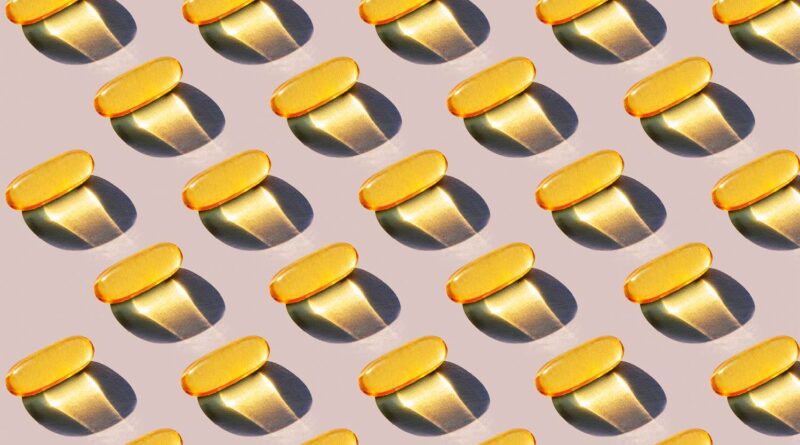Is it possible to take too much B12? Here’s What Nutritionists Say
Vitamins and minerals are essential for good health, which may explain why vitamin supplements are a multi-billion dollar business., Among the many supplements on the market, vitamin B12 is at the top of the popularity list. In fact, about a quarter of men and about a third of women take B12 in supplement form, according to the National Institutes of Health. This member of the B vitamin family is important for red blood cell production, nerve and brain function, and cell health. It is also touted for its ability to help boost energy and mood.
But how much B12 do you need, and can you take too much? (Or do you need to take it at all?) Most people get enough B12 through food. However, a B12 supplement can help you make sure you’re getting enough—especially if you’re vegan or vegetarian or have trouble absorbing this important nutrient.
Read on to learn who can benefit from B12 supplementation and if it’s possible to take too much.
What is Vitamin B12?
Vitamin B12 (also called cobalamin) is a water-soluble vitamin that is important for a variety of body functions, including red blood cell formation, energy production, DNA synthesis and brain health. It is found naturally in animal products such as meat, milk and eggs and is important for maintaining healthy nerve cells and producing energy. B12 deficiency can lead to fatigue, weakness and neurological problems such as numbness, tingling and mental retardation. Because your body stores B12 in the liver for a long time, deficiency symptoms can appear years after an inadequate intake.
How Much Do You Need?
The Recommended Dietary Allowance for vitamin B12 varies by age, gender and health status. According to the National Institutes of Health, most healthy adults need 2.4 micrograms each day, usually combined with a balanced diet. Pregnant or breastfeeding women have slightly higher needs at 2.6 and 2.8 micrograms per day, respectively. Vitamin B12 is not found in plant foods such as fruits, vegetables, legumes and whole grains. To meet the requirements, it is necessary to eat animal products such as eggs, milk and meat, or plant-based foods such as nutritional yeast, fortified cereals and plant-based milk.
Do You Need a B12 Supplement?
Most people can get enough of this nutrient through food, but some groups are at high risk of deficiency and may need a supplement. because B12 is not found in plant foods. , and adults with poor absorption,” says Lauren Harris-Pincus, MS, RDN, founder of NutritionStarringYou and author of The All Easy Pre-Diabetes Cookbook. Other health conditions, such as anemia and gastrointestinal problems that affect nutrient absorption, such as Crohn’s disease or celiac disease, can also increase the risk of vitamin B12 deficiency, he adds. by saying. Additionally, GI surgery and medications such as metformin and proton pump inhibitors can also interfere with the absorption of this vitamin.
Can you take too much vitamin B12?
Because vitamin B12 is water-soluble, it has a low risk of toxicity. Trista Best, RD, a registered dietitian with Balance One Supplements, explains: “The body usually excretes a lot of B12 in the urine. However, taking very high doses of B12 supplements, especially over a long period of time, can cause side effects. Although the upper limit of intake of B12 [has not been] established, avoid excessive consumption without medical supervision.”
Signs and Symptoms
Vitamin B12 is considered safe even in high doses because your body does not store much of it. However, in rare cases, excessive intake of B12 from supplements can cause unwanted side effects. Some studies show that high levels of B12 can affect kidney function or interact with certain medications. Another possible symptom of taking too much B12 includes a mild skin reaction, such as itching, rash or acne-like breakouts.
“Talk to your health care provider before increasing your B12 intake too much, especially if you’re taking medication or have medical conditions like chronic kidney disease,” says Best. “Regular blood work can help ensure your B12 levels are at a healthy level.”
Frequently Asked Questions
-
How much B12 a day?For most people, doses over 2,000 micrograms per day are considered excessive, as the average daily recommended amount ranges from 2.4 to 2.8 micrograms.
-
What are the side effects of too much B12 in the body?Although rare, excess B12 intake can cause acne, pimples or kidney failure, as the kidneys help filter and remove excess vitamin B12 from the blood.
-
How long does it take for excess B12 to leave the body?“Excess vitamin B12 is excreted in the urine, and high levels are normal within a few days to a week after stopping supplementation,” says Best.
The Bottom Line
Vitamin B12 is a water-soluble nutrient required for many body functions, including red blood cell production, nerve and brain function, mood and energy. Most healthy adults get enough B12 from food. However, some people may benefit from supplementing with B12, including vegans, vegetarians, people taking certain medications, and those with chronic kidney disease. Because B12 absorption decreases with age, supplements can also help people over 65.
Although B12 supplementation is generally safe even in high doses, monitoring your intake is wise to avoid potential side effects, such as skin conditions or kidney problems. Talk to your health care provider or registered dietitian before increasing your B12 supplement to help you maintain optimal levels for good health.
#B12 #Heres #Nutritionists
